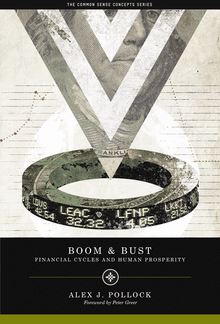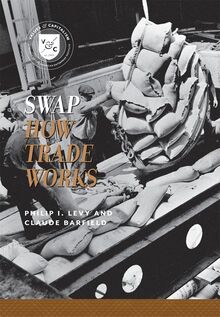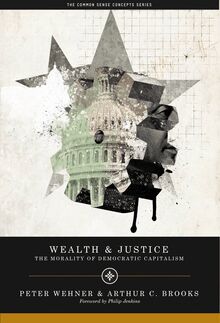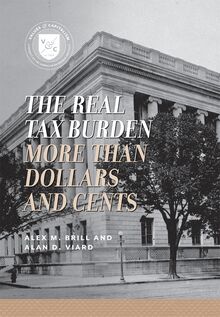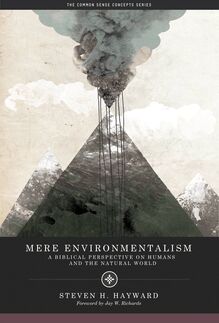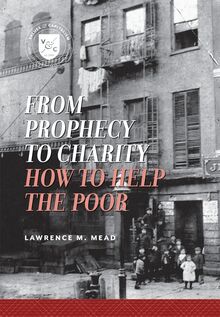-
 Univers
Univers
-
 Ebooks
Ebooks
-
 Livres audio
Livres audio
-
 Presse
Presse
-
 Podcasts
Podcasts
-
 BD
BD
-
 Documents
Documents
-
- Cours
- Révisions
- Ressources pédagogiques
- Sciences de l’éducation
- Manuels scolaires
- Langues
- Travaux de classe
- Annales de BEP
- Etudes supérieures
- Maternelle et primaire
- Fiches de lecture
- Orientation scolaire
- Méthodologie
- Corrigés de devoir
- Annales d’examens et concours
- Annales du bac
- Annales du brevet
- Rapports de stage
La lecture à portée de main
Vous pourrez modifier la taille du texte de cet ouvrage
Découvre YouScribe en t'inscrivant gratuitement
Je m'inscrisDécouvre YouScribe en t'inscrivant gratuitement
Je m'inscrisEn savoir plus
Vous pourrez modifier la taille du texte de cet ouvrage
En savoir plus

Description
Sujets
Informations
| Publié par | AEI Press |
| Date de parution | 16 décembre 2010 |
| Nombre de lectures | 0 |
| EAN13 | 9780844743844 |
| Langue | English |
Informations légales : prix de location à la page 0,0450€. Cette information est donnée uniquement à titre indicatif conformément à la législation en vigueur.
Extrait
BOOM & BUST
FINANCIAL CYCLES AND HUMAN PROSPERITY
BOOM & BUST
FINANCIAL CYCLES AND HUMAN PROSPERITY
Alex J. Pollock
AEI Press Publisher for the American Enterprise Institute Washington, D.C.
Distributed by arrangement with the National Book Network 15200 NBN Way, Blue Ridge Summit, PA 17214 To order call toll free 1-800-462-6420 or 1-717-794-3800.
For all other inquiries please contact AEI Press, 1150 17th Street, N.W., Washington, D.C. 20036 or call 1-800-862-5801.
Copyright © 2011 by the American Enterprise Institute for Public Policy Research, Washington, D.C.
ALL RIGHTS RESERVED.
Cover Design by Amy Duty and Justin Mezzell Interior design by Amy Duty, Justin Mezzell, and Jesse Penico
No part of this publication may be used or reproduced in any manner whatsoever without permission in writing from the American Enterprise Institute except in the case of brief quotations embodied in news articles, critical articles, or reviews. The views expressed in the publications of the American Enterprise Institute are those of the authors and do not necessarily reflect the views of the staff, advisory panels, officers, or trustees of AEI.
LCCN: 2010020471 ISBN-13: 978-0-8447-4383-7 eISBN-13: 978-0-8447-4384-4
FOREWORD
by Peter Greer
Economics, market forces, fi nancial cycles: These topics are not likely to elicit a passionate response. They’re necessary topics, but they’re not really much fun. And they’re certainly not buzzwords among people who want to change the world. We are passionate about issues of justice, service, poverty, slavery, education, healthcare, and clean water. But if we really want to make a sustainable impact on any of these issues in the United States or internationally, then we simply must grow in our understanding of economics, market forces, and fi nancial cycles.
I remember the first time I realized that my “help” was insufficient at best, and actually could be harming the people I was trying to assist. While living in Rwanda, I met Jean, a survivor of the 1994 Rwandan genocide. Soon after the genocide, he had begun to rebuild his life, starting a poultry business that provided eggs to his community. His business thrived for a time—until a church in Georgia “adopted” his village as part of its crusade to help victims of the genocide, providing food,clothes, and free eggs imported from a neighboring village. With this new surplus, Jean’s egg business failed. No matter how good a business plan might be, it is nearly impossible to compete with a free or heavily subsidized product. Jean was forced to sell his most productive assets, his chickens, and look for other employment.
A year later, the church left the village to support other individuals struck by disaster. With no local supplier of eggs, the village had to import them at a higher price than Jean had charged originally. At first, giving away free eggs had seemed like a great solution: The community was poor, the American church was rich, and, for a time, the community was well fed. In the long-term, though, their efforts were not sustainable and, ultimately, Jean and the other community members were negatively impacted. The church had a vision to improve the lives of those in a poor community, the passion to set the groundwork for change, and the drive to implement their vision. So what went wrong?
For most of my life, I thought that if people are hungry, the best thing we can do is to give them our excess food. If people are thirsty, let’s import bottled water. If people need clothes, we should empty our closets for charity. If people are caught in slavery, let’s purchase them and set them free. But I missed the bigger picture: These are all temporary and ultimately dissatisfying fixes. People will be hungry tomorrow. Clothes will wear out and need to be replaced. Chains of dependency willslowly strangle aspirations and dreams. Disincentives for productivity will undermine long-term progress. With short-term solutions, people will always have the same needs a short time later. It is becoming clear that intervention in market forces is not as straightforward as we might imagine. To have a greater likelihood of improving the extreme poverty and injustices in our world, we desperately need an understanding of business cycles and markets.
Contrasting Jean’s story to that of another entrepreneur in Rwanda, I began to see how important it is to understand a free market system. Like my friend Jean, Chantal Nyiraneza is a Rwandan genocide survivor and a gifted entrepreneur. Unlike Jean, she had the freedom to use her entrepreneurship to bring about change in her community. Orphaned after the genocide, Chantal decided to become the caretaker for her siblings and cousin. After marrying another genocide survivor who also had orphaned family members, Chantal needed to fi nd a way to provide for her growing family. She had been in the business of selling tea, milk, and soda, but she needed capital in order to increase her business profits. She took out a small loan of $35.00 from Urwego, a Rwandan microfinance institution, and with this loan, she expanded her small menu to include an array of entrees.
Today, her restaurant is thriving; with over two hundred customers stopping each day, she daily roasts two goats in order to keep up with the demand. Her daily profits exceed the original loan she took. Through her business, she has had the ability to feed her family and send her nine children and siblings to school. Not only does she support the needs of her family, she has employed twenty-eight others over the years and has helped twenty of her former employees start thriving businesses of their own.
Through the power of business initiative and market forces, Chantal and her community have been changed. Even in times of difficulty, Chantal was able to use business to transform her circumstances. Unlike Jean, Chantal had the freedom to utilize her skills, to experiment. Unlike Jean, no one prevented her from unleashing her creativity, her enterprise, and her potential to succeed.
Seeing Jean and Chantal’s stories side by side, it’s easy to note the similarity of their situations—both were Rwandan, reeling from the devastation of the genocide, and living in poverty— yet their stories have starkly contrasting outcomes. The difference in outcome lies largely in understanding the free market system and economics. On a micro scale, we can see how the external force attempting to do good in Jean’s case appeared to be successful: People in the village were happy to receive free eggs and were thriving from the charity provided by the church. Members of the church were receiving positive feedback from the community and so they continued helping and offering charity. For a time, their efforts appeared to help. But in the end, the entire community had to pay the price.
To understand our current economic downturn, we need to see clearly the contrast between Jean and Chantal’s approaches and gain a longer-term perspective on what happens when the free market thrives and what happens when market manipulation and short-term fixes undermine long-term growth. Alex J. Pollock provides this perspective in Boom and Bust: Financial Cycles and Human Prosperity , concisely explaining how positive change depends on an understanding of economic systems. Consider the impact of misplaced intervention in the downfall of Fannie Mae and Freddie Mac. Ironically, Freddie Mac was created in reaction to the 1960s credit crunches in order to help citizens receive mortgages. When first initiated, Fannie and Freddie helped increase the chance of home ownership at a time when mortgages were difficult to procure. The programs appeared to be a success: Homeowners were happy. The building industry boomed. Fannie and Freddie kept growing, taking on increasingly risky mortgages. But, by toying with free market principles, Fannie Mae and Freddie Mac slowly became liabilities to taxpayers, who now bear the brunt of several hundred billion dollars in debt because of Fannie and Freddie’s downfall. Fannie and Freddie were short-term solutions that provided a temporary state of economic euphoria but undermined longterm and sustainable growth.
Drawing on over thirty-five years of banking experience, Pollock gives us an inside look at what fueled the latest economic crisis. He not only identifies the players, he also explains why, time after time, smart shareholders decide to stake their money in risky investments, and why so many of the most astute business and government leaders led themselves astray in our most recent panic. He doesn’t give us formulas to avoid another crisis. He doesn’t share ten investing tips to get rich. He doesn’t even provide us with a prediction about the next market crisis. Instead, deftly weaving together his knowledge of fi nancial policy and business, Pollock offers us context. Steering away from speculation, he provides us with hard evidence: In the last century, overall economic well-being has consistently risen. While he never downplays the losses effected by the recent crisis, he does put them into perspective. It’s context that will enable us to more quickly identify risk in the market and to plan for sustainable economic growth. And, armed with this knowledge, we’ll be infinitely more likely to contribute to positive change in our country and our world.
Only when we learn to see business opportunities and the free market, even with its inherent risks and fallibilities, as a place where the greatest social change can occur can people like Jean and Chantal—and you and me—transform communities. Pollock’s call for us to research the facts and gain perspective is the only way we can tackle the significant social problems we’re facing. Otherwise, we will just be offering free eggs and false hopes.
This timely and important book is not just for policy wonks or for students in business classes. It’s for anyone who wants to make a positive change in t
-
 Univers
Univers
-
 Ebooks
Ebooks
-
 Livres audio
Livres audio
-
 Presse
Presse
-
 Podcasts
Podcasts
-
 BD
BD
-
 Documents
Documents
-
Jeunesse
-
Littérature
-
Ressources professionnelles
-
Santé et bien-être
-
Savoirs
-
Education
-
Loisirs et hobbies
-
Art, musique et cinéma
-
Actualité et débat de société
-
Jeunesse
-
Littérature
-
Ressources professionnelles
-
Santé et bien-être
-
Savoirs
-
Education
-
Loisirs et hobbies
-
Art, musique et cinéma
-
Actualité et débat de société
-
Actualités
-
Lifestyle
-
Presse jeunesse
-
Presse professionnelle
-
Pratique
-
Presse sportive
-
Presse internationale
-
Culture & Médias
-
Action et Aventures
-
Science-fiction et Fantasy
-
Société
-
Jeunesse
-
Littérature
-
Ressources professionnelles
-
Santé et bien-être
-
Savoirs
-
Education
-
Loisirs et hobbies
-
Art, musique et cinéma
-
Actualité et débat de société
- Cours
- Révisions
- Ressources pédagogiques
- Sciences de l’éducation
- Manuels scolaires
- Langues
- Travaux de classe
- Annales de BEP
- Etudes supérieures
- Maternelle et primaire
- Fiches de lecture
- Orientation scolaire
- Méthodologie
- Corrigés de devoir
- Annales d’examens et concours
- Annales du bac
- Annales du brevet
- Rapports de stage

